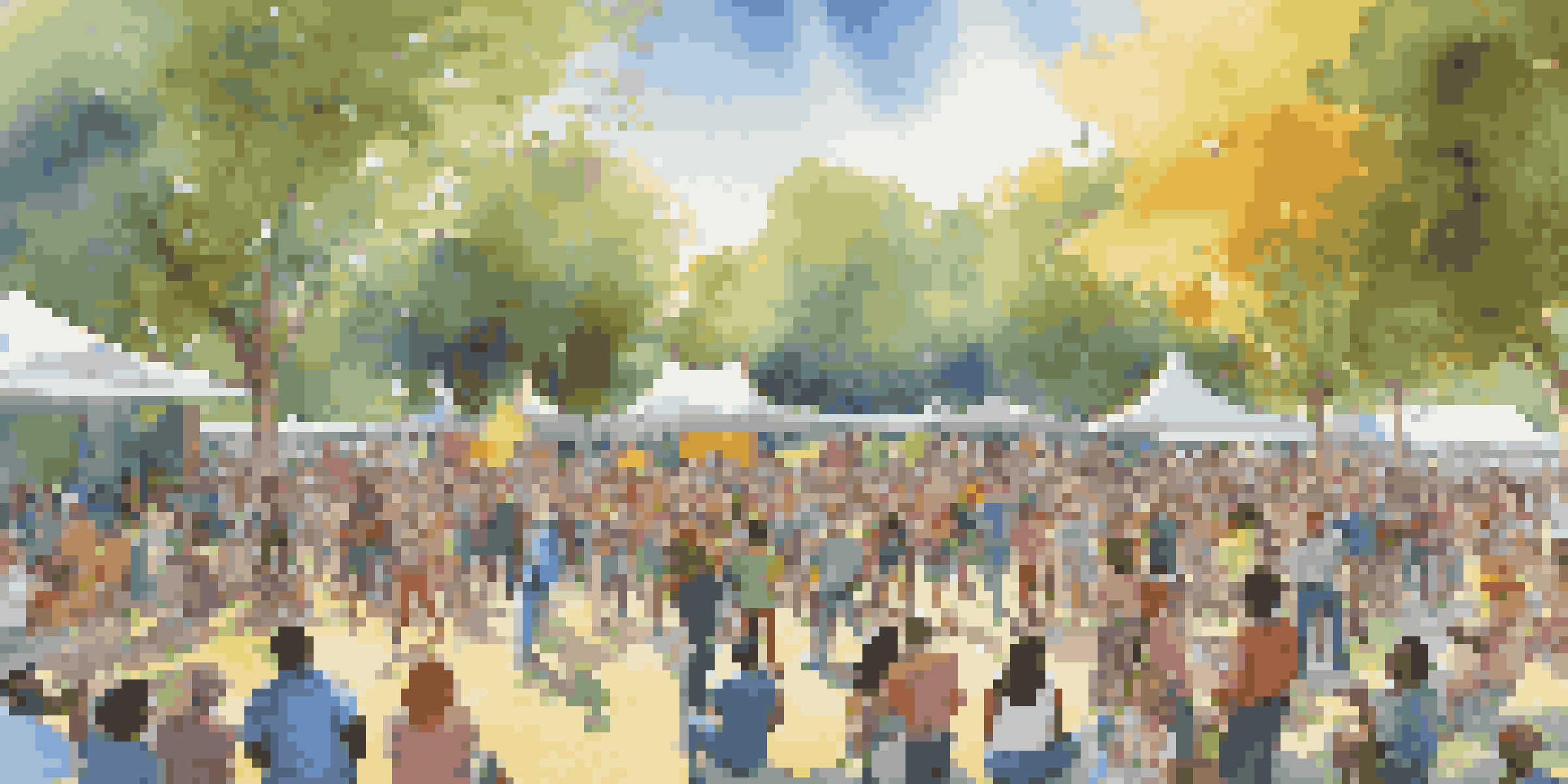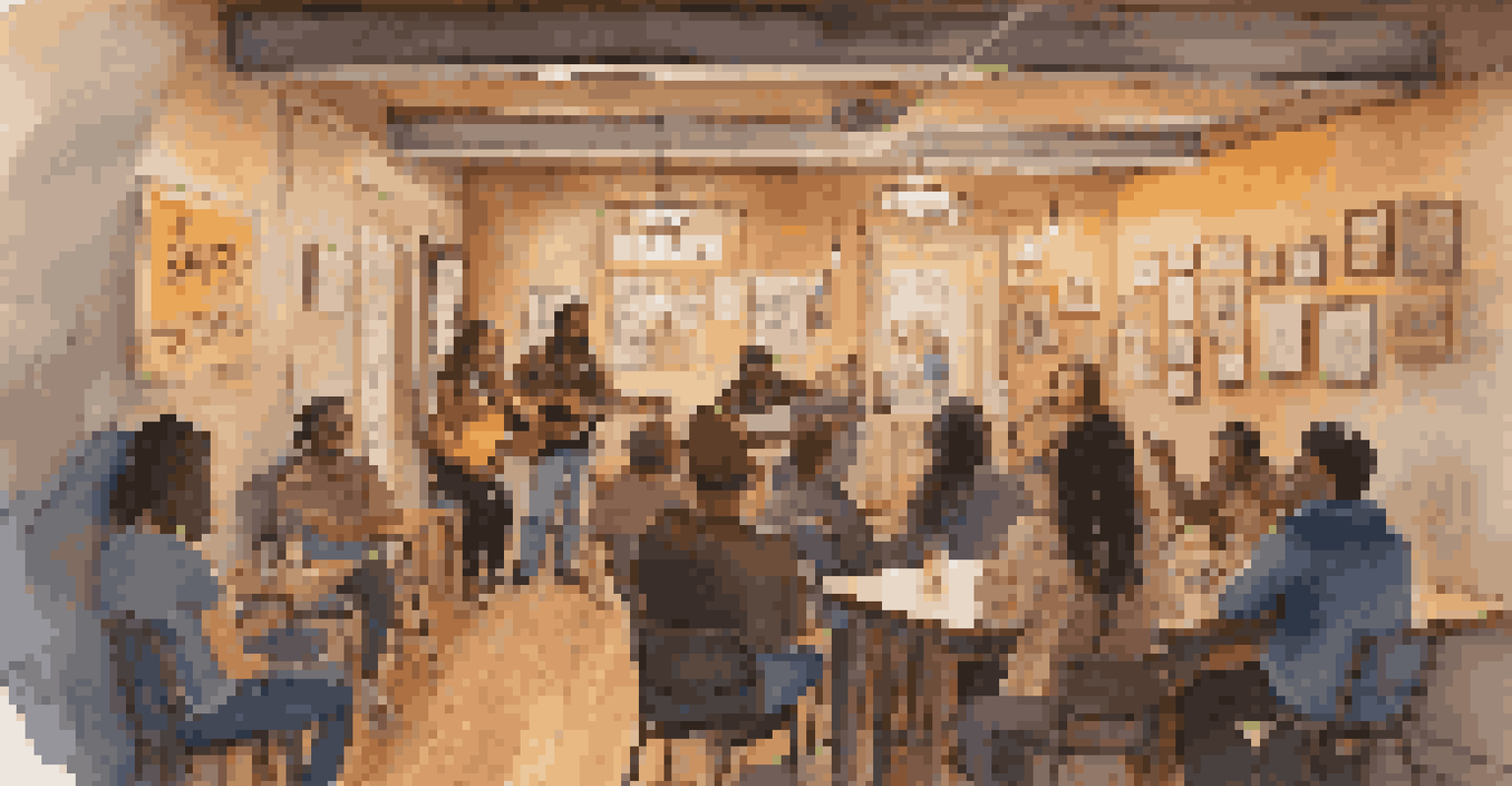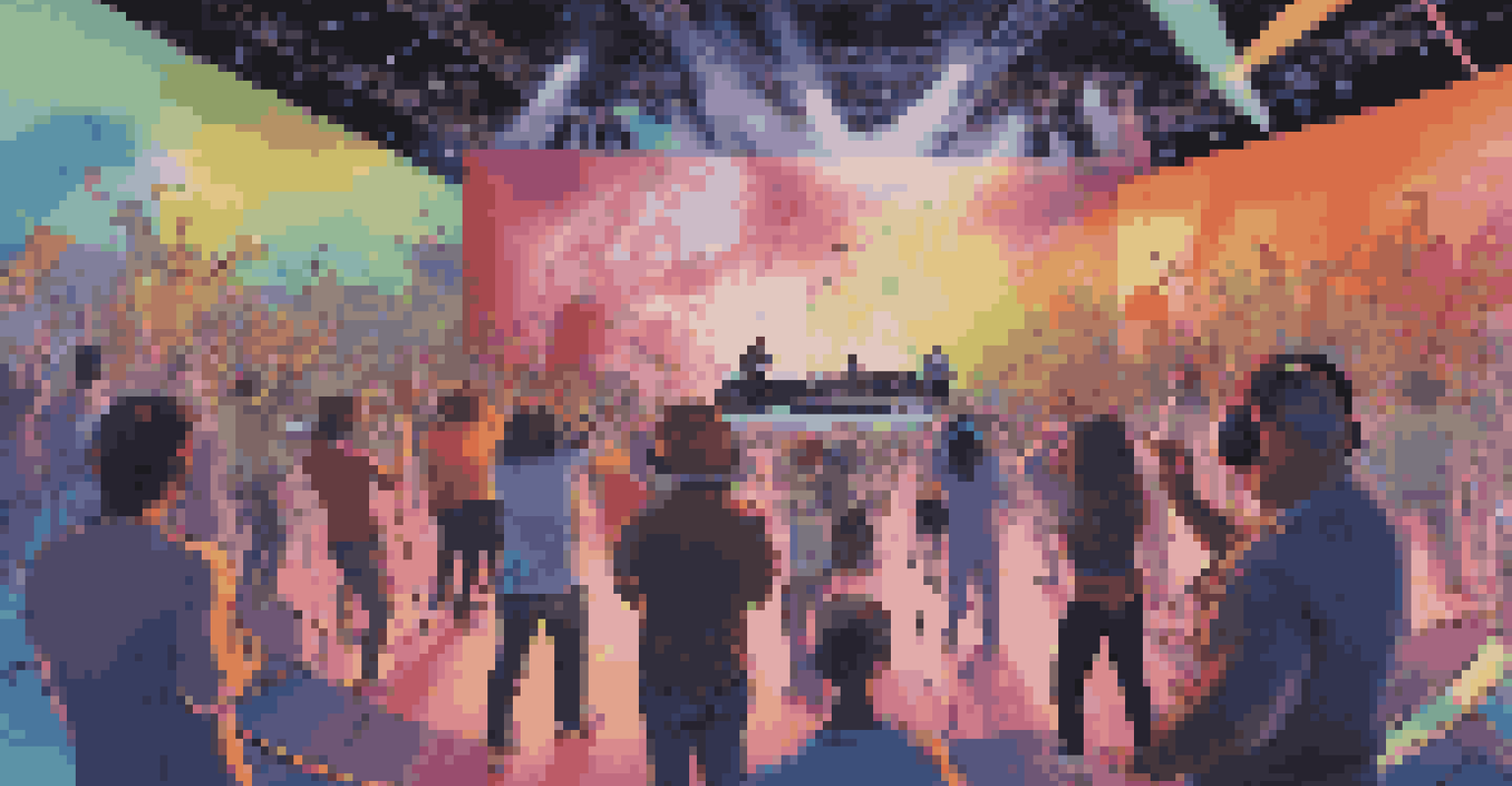Musical Activism: How Music Drives Community Change

The Power of Music in Social Movements
Music has long served as a rallying cry for social movements. From the civil rights era with songs like 'We Shall Overcome' to contemporary protests, music unites people. It creates shared experiences that transcend individual differences, making it easier for communities to come together for a common cause.
Music can change the world because it can change people.
The emotional resonance of music can amplify messages, making them more impactful. When people hear a powerful song associated with a movement, it can evoke strong feelings of solidarity and urgency. This emotional connection often pushes individuals to take action, whether by joining protests or spreading awareness.
Moreover, music can serve as a historical record of social struggles. Songs encapsulate the sentiments and challenges of different eras, providing insight into the culture and context of the time. By preserving these musical narratives, future generations can learn from past activism and continue the fight for justice.
Music as a Tool for Awareness and Education
Educational outreach through music can be a game changer in communities. Artists often use their platforms to raise awareness about issues like climate change, poverty, and social justice. By embedding these themes in their songs, they educate listeners in a relatable way that statistics and reports might not accomplish.

For instance, consider how hip-hop artists have highlighted systemic racism and inequality. Through storytelling in their lyrics, they can shed light on personal experiences and injustices, prompting listeners to reflect and engage with these important issues on a deeper level. This blend of entertainment and education makes complex topics more accessible.
Additionally, workshops and community events that incorporate music can foster dialogue and understanding. These gatherings create safe spaces where individuals can express their thoughts and feelings, breaking down barriers and building connections. When people engage with music together, they often find common ground, paving the way for meaningful conversations.
Community Building Through Musical Collaboration
Collaborative music projects can strengthen community bonds. When people come together to create music, whether in formal settings or casual jam sessions, they forge connections that might not otherwise develop. This sense of belonging is crucial for fostering a supportive environment for activism.
Without music, life would be a mistake.
Local musicians often participate in benefit concerts or community festivals, further solidifying their ties to the causes they care about. These events not only raise funds for important initiatives but also promote a sense of unity among attendees, reminding them of the power of collective action.
Moreover, these collaborations often lead to the emergence of new voices within the community. By providing platforms for underrepresented artists, communities can amplify diverse perspectives and experiences. This inclusivity enriches the local music scene while drawing attention to vital social issues that might otherwise be overlooked.
The Role of Iconic Songs in Activism
Certain songs become anthems for change, resonating deeply with movements around the world. Take 'Imagine' by John Lennon, which has inspired countless peace initiatives since its release. Its simple yet profound message encourages listeners to envision a world without conflict, making it a timeless call for unity.
Similarly, 'Fight the Power' by Public Enemy became synonymous with the struggle against racial injustice and inequality. Its powerful lyrics challenge the status quo, urging listeners to stand up and demand change. Such songs serve as a soundtrack for movements, energizing participants and reinforcing their commitment to the cause.
The impact of these iconic songs extends beyond the moment they were released. They often resurface during times of social unrest, reminding people of the ongoing fight for justice. By connecting past struggles to present challenges, music provides a sense of continuity and hope for future generations.
Grassroots Movements Fuelled by Local Musicians
Local musicians play a pivotal role in grassroots activism. They often have a deep understanding of their communities and the issues they face. By using their art to address local concerns, they can inspire others to take action and advocate for change.
For instance, many artists host open mic nights or community concerts where they address social issues relevant to their neighborhoods. This strategy not only entertains but also encourages dialogue about pressing matters, mobilizing community members to get involved.
Additionally, local musicians often collaborate with activists and organizations, amplifying their messages through song. This partnership creates a powerful synergy that can drive significant change, proving that music is more than just entertainment—it's a vital tool for community empowerment.
Social Media: Amplifying the Impact of Musical Activism
In the digital age, social media has revolutionized the way music drives activism. Platforms like Instagram, Twitter, and TikTok allow artists to share their messages instantly with a global audience. This amplification can inspire movements and rally support in ways that traditional media often cannot.
For example, viral challenges or campaigns often incorporate music, drawing attention to important causes. When a song becomes associated with a movement, it spreads rapidly, encouraging people to engage and participate. This fast-paced sharing creates a sense of urgency and collective action that resonates with younger generations.
Moreover, social media enables grassroots movements to gain visibility that might otherwise be unattainable. Local artists can connect with like-minded individuals across the globe, fostering an international community united by a shared passion for change. In this way, music transcends geographic boundaries, igniting a universal call for justice.
The Future of Musical Activism
As we look to the future, the potential for musical activism remains vast. With the rise of new genres and innovative artists, the ways in which music can inspire change will continue to evolve. From virtual concerts to interactive music experiences, the possibilities are endless.
Emerging technologies, like augmented reality and virtual reality, may offer new avenues for musical storytelling. These immersive experiences can deepen emotional connections and create powerful calls to action, further engaging audiences in social issues.

Ultimately, the heart of musical activism lies in its ability to connect people and inspire change. As long as there are passionate artists willing to use their voices for good, music will remain a powerful catalyst for community transformation and social justice.